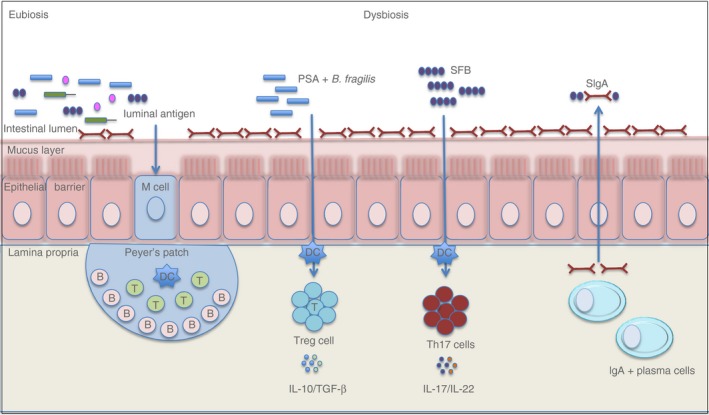Figure 1.

A schematic representation of the interaction between commensal microbiota and the immune system. Under eubiosis, there are microbiota diversity and immune homeostasis in the gut mucosa. Commensal microorganisms instruct dendritic cells to induce IgA‐secreting cell differentiation, and in turn, IgA regulates the composition of the gut microbiota. During dysbiosis, there are decreased diversity in commensal microbiota and deregulated interactions between immune cells and these microorganisms. Some specific bacteria, such as Bacteroides fragilis, induce regulatory T cell differentiation and the secretion of anti‐inflammatory cytokines, whereas segmented filamentous bacteria (SFB) promote T helper type 17 (Th17) cell differentiation and the secretion of pro‐inflammatory cytokines, which play roles in several autoimmune diseases.
